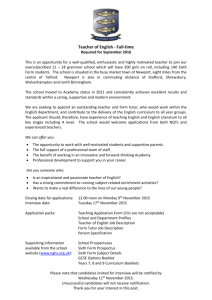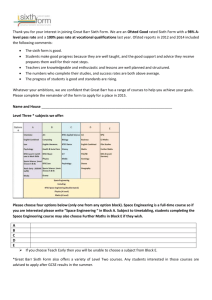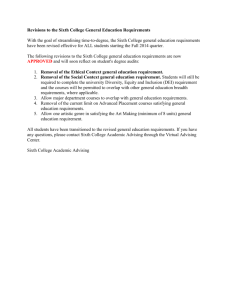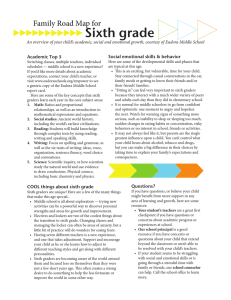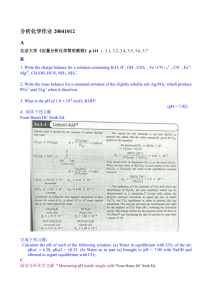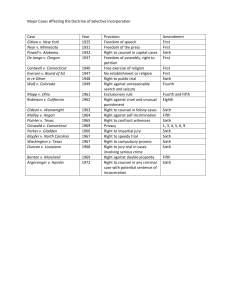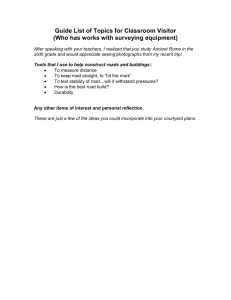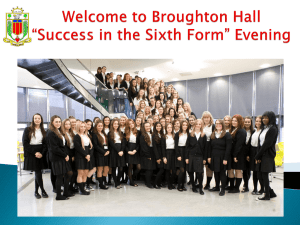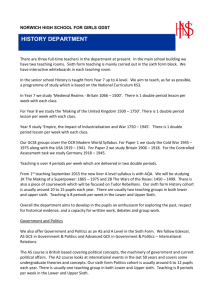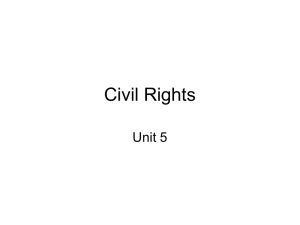Sixth Form & College Interview Tips | Calder High School
advertisement
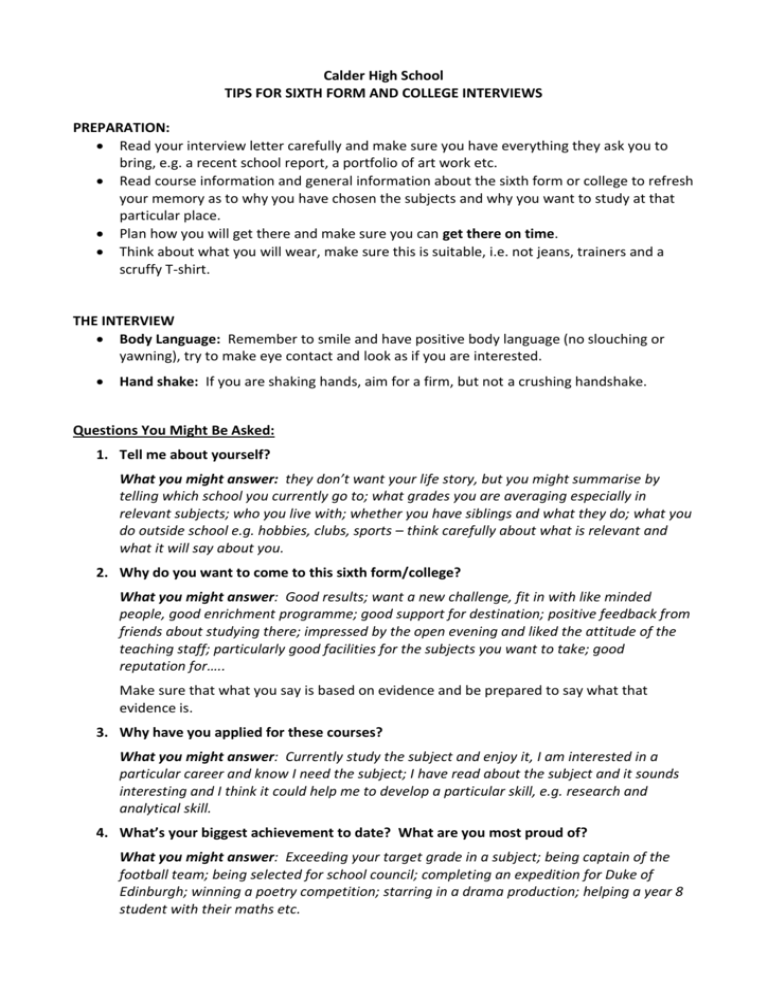
Calder High School TIPS FOR SIXTH FORM AND COLLEGE INTERVIEWS PREPARATION: Read your interview letter carefully and make sure you have everything they ask you to bring, e.g. a recent school report, a portfolio of art work etc. Read course information and general information about the sixth form or college to refresh your memory as to why you have chosen the subjects and why you want to study at that particular place. Plan how you will get there and make sure you can get there on time. Think about what you will wear, make sure this is suitable, i.e. not jeans, trainers and a scruffy T-shirt. THE INTERVIEW Body Language: Remember to smile and have positive body language (no slouching or yawning), try to make eye contact and look as if you are interested. Hand shake: If you are shaking hands, aim for a firm, but not a crushing handshake. Questions You Might Be Asked: 1. Tell me about yourself? What you might answer: they don’t want your life story, but you might summarise by telling which school you currently go to; what grades you are averaging especially in relevant subjects; who you live with; whether you have siblings and what they do; what you do outside school e.g. hobbies, clubs, sports – think carefully about what is relevant and what it will say about you. 2. Why do you want to come to this sixth form/college? What you might answer: Good results; want a new challenge, fit in with like minded people, good enrichment programme; good support for destination; positive feedback from friends about studying there; impressed by the open evening and liked the attitude of the teaching staff; particularly good facilities for the subjects you want to take; good reputation for….. Make sure that what you say is based on evidence and be prepared to say what that evidence is. 3. Why have you applied for these courses? What you might answer: Currently study the subject and enjoy it, I am interested in a particular career and know I need the subject; I have read about the subject and it sounds interesting and I think it could help me to develop a particular skill, e.g. research and analytical skill. 4. What’s your biggest achievement to date? What are you most proud of? What you might answer: Exceeding your target grade in a subject; being captain of the football team; being selected for school council; completing an expedition for Duke of Edinburgh; winning a poetry competition; starring in a drama production; helping a year 8 student with their maths etc. 5. How would your teachers describe you? What you might answer: Hardworking; determined; punctual; motivated; a good leader; a real team player; keen to get involved; a good organiser; able to meet deadlines. 6. What can you bring to our sixth form/college? What you might answer: Want to organise events in the community; want to work with students in lower school; want to be a senior student responsible for… etc. – think of examples to back this up, e.g. I am good at working in a team, for Comic Relief I raised money with a group of friends by baking and selling cakes. 7. What do you enjoy doing outside of school? What you might answer: Remember this is not a social chat, they are interested in how you organise your time; what you get from the activity; how you balance work and social time. e.g. if you have said that you enjoy watching films, they may ask what kind of films you like to watch or what is your favourite film and why? 8. What are your long term goals? Where do you see yourself in 5 years? What they might expect in an answer: Show that you have thought about where and what you want to study could lead, e.g. It is my ambition to be a journalist, that is why I have chosen to study English and History and want to get involved in the school magazine and radio. After sixth form I plan on going to university and doing a degree in History and Politics, and then hope to do a journalism qualification. 9. What are your favourite and least favourite subjects? What you might answer: Explain why you like or don’t like the subject, e.g. I like drama because I enjoy working with others and really like getting into character. I don’t like ICT because I find it a hard subject to understand. Never say that you don’t like a subject because the teacher is rubbish – avoid blaming others. 10. What are your reasons for changing school? What you might answer: Be positive; don’t focus on negatives, e.g. I feel ready for a change and a new challenge, my school doesn’t offer the subjects I want to do, I prefer the type of qualifications you offer. 11. Have you got any questions? What you might answer: Examples of questions you might ask: I’m interested in doing work experience, would this be a possibility? What time does the college/sixth form start and finish? What universities have your students progressed onto? What kind of support do you offer with applying to university? I’m not planning on going to university, what kind of support can you offer with applying for work/or an apprenticeship? I understand that I will have to buy a hairdressing kit, is there any financial support available for this? IF YOU HAVE APPLIED FOR A PARTICULAR COURSE THEY MAY ASK MORE SPECIFC QUESTIONS, for example, for childcare they may give a case scenario, such as what would you do if you had £5.00 to look after a child for a day? Or if you were working in a nursery and child cut themselves what would you do?
